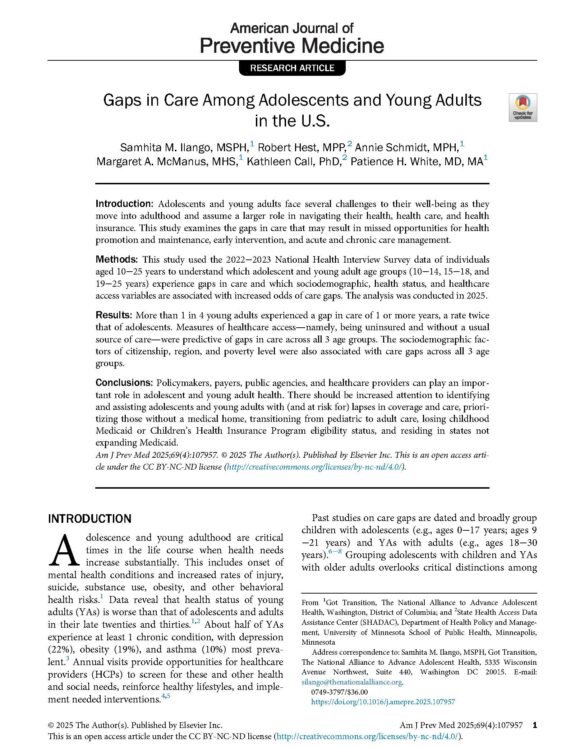Personal Advocacy: Why Families Always Will Be Their Child’s Care Coordinator
Pediatric care coordination is more talked about by health care policymakers than carried out by providers. Here’s one reason why: Care coordination is routinely described as “a patient- and family-centered, assessment-driven, team-based activity designed to meet the needs of children and youth while enhancing the caregiving capabilities of families. Care coordination addresses interrelated medical, social, developmental, behavioral, educational, and financial needs to achieve optimal health and wellness outcomes.”1 Wow! Very ambitious.
And since families of children with special needs bear the brunt of absent or failed efforts to coordinate the care of their children, it makes sense that they find it necessary to step in as the principal care coordinator.
Another reason why family members do most of the care coordination is that they know best their child’s care history and needs. To date there is no technology up to the task of providing comprehensive, real time information about a child’s health, let alone capable of integrating across all the various systems on which special needs children depend.
But there is one more reason why families are and always will be essential in the care coordination process. The child in question is their child. They think about their child all the time. They are always on the lookout for new services, treatments and devices that will help their child. Parents would be thrilled if they received an unanticipated call from a care coordinator or a service provider with news of something new for their child, but such calls rarely if ever happen, except in response to a parent specifically pointing out a need. Others who are involved in the child’s care typically have caseloads or patient panels too large to enable such proactive assistance.
Individualized, proactive care coordination is a form of advocacy. This kind of advocacy, focused on a single child, is essential to maximize access to critical services and to optimize children’s health and well-being. If it were available from outside of the family, it would also reduce the stress that family members experience. But it’s not. However, families can and should be supported in their role as their child’s principal care coordinator as well as the principal care provider.2 Offering that support is not a new role for health care providers, but it could stand some strengthening. Here are several ways in which the role of families as care coordinators can be supported within hospitals and medical practices, depending on the organization and location of their medical home:
- Designate a specific staff member or professional to serve as the central contact point for the family and members of the extended team of professionals serving them
- Engage in collaborative goal setting with the care team and the family
- Train health care providers to be teachers, coaches and partners in care
- Establish planned visits with all members of the care team to discuss care plans and planning
- Teach and use the five core self-management skills of problem solving, decision making, resource utilization, forming a patient-provider partnership and taking action
- Use peer or mentor families to help families learn to navigate the systems of care for CSHCN
- Develop easy-to-use and regularly updated databases of community services available at a centralized location within the community
- Jointly develop a written care plan that all essential members of the team, including the family, are able to access and update
- Use mechanisms to promote and streamline communication among members of the care team, including group visits, communication technologies such as video-conferencing and mobile applications, and shared access to medical records
Most of these functions and activities at least require collaboration among all of the various professional and community-based services upon whom the child and family depend. Some require programs and policies within the community. It takes a family to raise a child, but it takes a village to support families so care can be coordinated.
1. Antonelli R.C., McAllister J.W., Popp J. Making Care Coordination a Critical Component of the Pediatric Health System: A Multidisciplinary Framework. The Commonwealth Fund, May 2009
2. Henry H., Schor E. Teaching Families to Fish: How to Support Families as Care Coordinators. Lucile Packard Foundation for Children’s Health, July 2013



